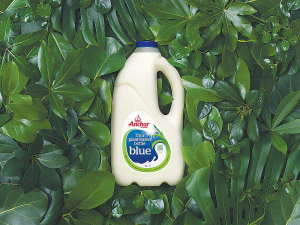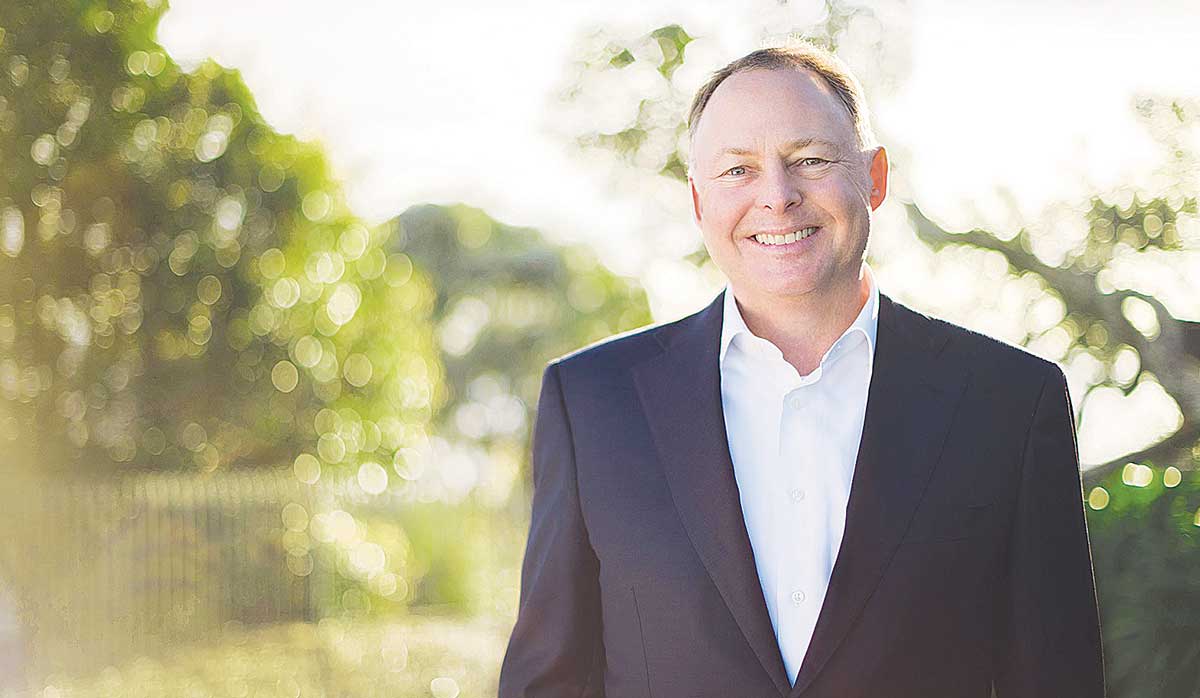Fonterra Suppliers Confident in Mainland Dairy Future
Fonterra's 460 milk suppliers in Australia, who will switch to Lactalis end of this month, are unfazed with the impending change.
 Anchor Blue 2L in the new plant-based bottle will land on shelves across New Zealand’s North Island from this week.
Anchor Blue 2L in the new plant-based bottle will land on shelves across New Zealand’s North Island from this week.
Fonterra is taking another step towards its commitment to having all packaging reusable, recyclable or compostable by 2025.
The co-operative’s consumer business brand Anchor last week launched New Zealand’s first plant-based milk bottle, which is 100% kerbside recyclable.
Anchor Blue 2-litre in the new plant-based bottle will land on shelves across the North Island from this week.
The co-op says while the bottle is still filled with the same fresh milk, it is made from sugarcane.
The sugarcane is natural, renewable and sustainably sourced, and is an alternative to bottles made from non-renewable sources like fossil fuels. It also captures CO2 from the atmosphere as it grows, resulting in a bottle with a low carbon footprint. The sugarcane is made into plant-based HDPE plastic in Brazil and the bottle itself is made here in New Zealand.
Fonterra Brands New Zealand managing director Brett Henshaw says sustainability is important to Kiwis and Fonterra wants to offer consumers an option to make change for good; to purchase a product that comes in more sustainable packaging.
“This plant-based milk bottle is an important component in Fonterra’s wider sustainability strategy. We have also committed to moving towards renewable energy in transport and manufacturing and finding ways to manage and reduce our emissions over the whole supply chain.”
Initially the new plant-based milk bottle will be available in the North Island, with a view to expand distribution and product ranging based on consumer response. Anchor will launch with 300,000 Blue 2L bottles per month.
Research into the new bottle shows that people are looking for products that are sustainably produced and they liked the plant-based bottle concept versus traditional fossil fuel based plastic alternatives.
Anchor commissioned an independent life cycle assessment of the bottle, which concluded this plant-based HDPE also has a lower carbon footprint than the conventional fossil fuel-based HDPE that most plastic milk bottles in New Zealand are made from.
According to research from the Sustainable Business Council, sustainability is becoming increasingly important for New Zealanders – 71% of Kiwis are actively researching the sustainability practices of brands before making a product purchase.
 |
|---|
|
Fonterra Brands NZ managing director Brett Henshaw. |
Two prominent New Zealanders – Richie McCaw and Stacey Morrison – say sustainability is increasingly important for them too and have welcomed the move by Anchor.
Richie McCaw says he grew up on a farm, and his sister is now a dairy farmer. “Innovations such as this are really important for the environment, as well as our dairy industry.”
Broadcaster Stacey Morrison noted that as a family they always look at ways to reduce their footprint or make small changes that help them live more sustainably.
“That mindset is important to me because it’s an effort to look after Aotearoa for our kids, and future generations.”
The Sustainable Business Network has also supported the announcement.
Kate Haselhoff, Project and Partnership Manager, the Sustainable Business Network commented that responsible businesses have an important role to play in addressing sustainability in packaging.
“So it’s really encouraging to see a prominent business like Fonterra undertake new trials and innovation in the packaging space as we look to transition to a circular economy.”
Budou are being picked now in Bridge Pā, the most intense and exciting time of the year for the Greencollar team – and the harvest of the finest eating grapes is weeks earlier than expected.
The Real Estate Institute of New Zealand (REINZ) has released its latest rural property report, providing a detailed view of New Zealand’s rural real estate market for the 12 months ending December 2025.
Rural retailer Farmlands has released it's latest round of half-year results, labeling it as evidence that its five-year strategy is delivering on financial performance and better value for members.
OPINION: "We are back to where we were a year ago," according to a leading banking analyst in the UK, referring to US president Donald Trump's latest imposition of a global 10% tariff on all exports into the US.
DairyNZ says the Government’s proposed Resource Management Act reform needs further work to ensure it delivers on its intent.
Overseas Trade Minister Todd McClay says he's working constructively with the Labour Party in the hope they will endorse the free trade agreement (FTA) with India when the agreement comes before Parliament for ratification.
OPINION: Expect the Indian free trade deal to feature strongly in the election campaign.
OPINION: One of the world's largest ice cream makers, Nestlé, is going cold on the viability of making the dessert.